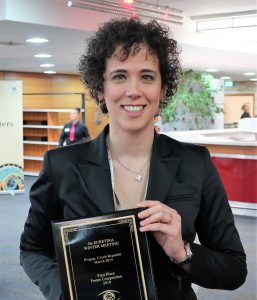Macular hole study wins EURETINA Poster Award
Inverted flap peeling technique safe and effective for large and small macular holes

Dermot McGrath
Published: Monday, March 4, 2019
 Giulia Airaghi
Giulia AiraghiInverted flap peeling technique safe and effective for large and small macular holes

Published: Monday, March 4, 2019
 Giulia Airaghi
Giulia Airaghi